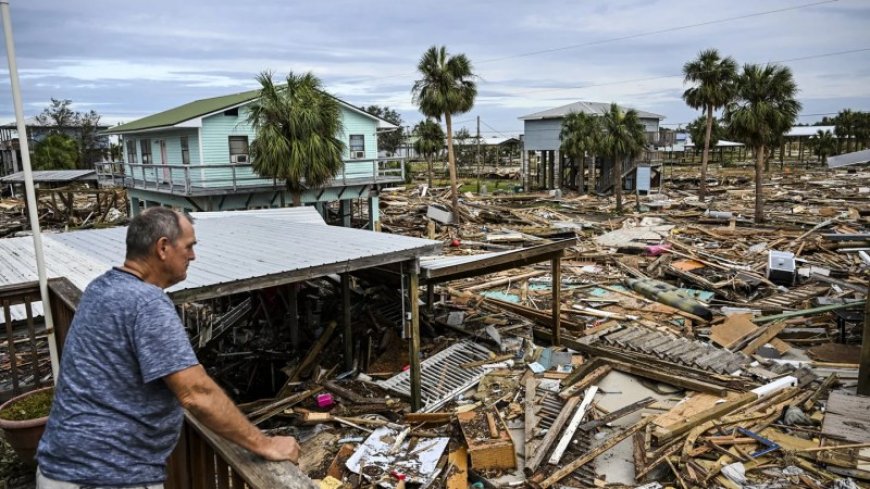A hurricane’s aftermath may spur up to 11,000 deaths
Hurricanes like Helene may indirectly cause deaths for years. Stress, pollution and a loss of infrastructure could all contribute to tropical cyclone fatalities.

An analysis of 501 tropical cyclones reveals excess deaths in the years following a storm
Tropical storms and hurricanes like Helene may in all probability in some way cause up to eleven,000 deaths in the 15 years that follow the initial destruction.
CHANDAN KHANNA/AFP/Getty Images

Hurricane Helene will have already hammered the Southeast, but its lethal aftermath may in all probability last a decade or more.
Tropical cyclones, which include hurricanes like Helene and other whirling storms, boost local death rates for up to fifteen years after whipping along U.S. coastlines, scientists report October 2 in Nature. Every storm may in some way cause between 7,000 and eleven,000 deaths, estimate University of California, Berkeley environmental economist Rachel Young and Stanford University economist Solomon Hsiang.
That’s a Mount Everest of an estimate in comparison to the official choice of deaths — 24 — that the National Oceanic and Atmospheric Administration attributes to the average storm in the team’s analysis. The consequences suggest that “hurricanes and tropical storms are a deal greater public health concern than anyone prior to now thought,” Young says.
The use of a statistical model, she and Hsiang analyzed the impact of all 501 tropical cyclones that hit the contiguous United States from 1930 to 2015. They measured changes in mortality for up to two decades after every of these storms. Their analysis means that an individual hurricane may in some way cause thousands of lives lost. And taken together, the storms may in all probability have spurred as many as 5 %of all deaths over that point period. Infants were specifically vulnerable, as were Black populations, the team found.
Young and Hsiang don’t know your entire ways hurricanes may contribute to mortality, but they've some ideas. It’s conceivable the stress of a surviving the sort of storm, or the pollution left in the wake of destruction, harms people’s health (SN: 10/1/24). And even local governments have less money to spend on health care after rebuilding ravaged infrastructure. It should in all probability be some combination of these and other factors, Young says. She’s keen on digging into what’s going on.
In the meantime, Young thinks her team’s work highlights the need for new disaster response polices — ones that account for hurricanes’ impact long-term. “We in point of fact pull together after these disasters to help people without delay in the aftermath,” she says. But “we needs to be keen on these people long after those initial responses are over.”
More Stories from Science News on Health & Medicine
What's Your Reaction?



























































